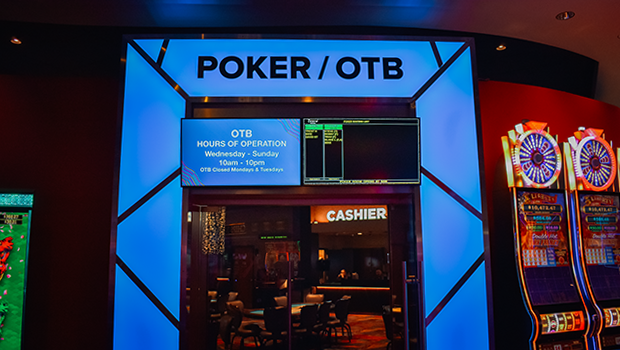Poker Tips to Help Improve Your Game at All Levels
Poker is an incredibly exciting game of chance and strategy that has captured the interest of millions of players worldwide. Whether you’re a complete beginner or an intermediate player looking to up your game, acquiring essential poker tips can significantly enhance your chances of success.
Explore these helpful poker tips within this article to enhance your skills, boost your confidence at the table, and ultimately increase your chances of winning big!
Poker Tips for Beginners:
1. Understanding the Basic Rules of Poker:
Before diving into the complexities of poker, it’s crucial to grasp the fundamental rules. Familiarize yourself with hand rankings, betting rounds, and the objective of each game. Most popular poker variants, like Texas Hold’em and Omaha, share similar core rules, making it easier to transition between games.
2. Starting Hand Selection and Position Awareness:
One of the most critical aspects of poker is knowing when to play your starting hands and how your position at the table affects your decision-making. Understanding which hands to play and when to fold preflop can give you a significant advantage over your opponents.
Premium Hands:
At the core of starting hand selection are premium hands like pocket Aces (AA), Kings (KK), Queens (QQ), and Ace-King (AK). These are statistically stronger hands that stand a better chance against a wider range of opponents. Playing these hands aggressively is generally a good poker strategy tip.
Hand Categories:
Categorize your starting hands based on their potential strength. Premium hands aside, you have speculative hands (like small pairs and suited connectors) and marginal hands (like suited aces with lower kickers). Speculative hands can be played in certain situations, especially in later positions and with more opponents, while marginal hands are often better folded.
Positional Play:
Your position at the table relative to the dealer button is crucial. The later your position, the more information you have about your opponents’ actions before making your decision. In early positions, play tighter (with stronger hands) since you’ll be acting with limited information. In later positions, you can play a wider range of hands due to the advantage of information.
Position Awareness:
Early Position:
This is where you’re seated close to the blinds and have to act before most of your opponents. Generally, play only premium and strong hands here, as you lack information about your opponents’ intentions. Be cautious with weaker hands.
Middle Position:
In these positions, you have some information about early players’ actions, but there are still players to act after you. You can widen your range slightly, including some speculative hands and moderately strong hands.
Late Position:
Here, you’re at a significant advantage. You’ve seen how most players have acted before you make your decision. This is where you can play a wider range of hands, including speculative ones, and consider more aggressive plays like raises and steals.
Blind Play:
Playing from the small blind or big blind positions can be challenging since you’ve already committed some chips. Defend your blinds appropriately, but don’t overcommit with weak hands.
Button Play:
The dealer button is the best position. You act last in every betting round post-flop, giving you maximum information. Exploit this advantage by playing a broader range of hands and considering steal attempts when the action folds to you.
3. Managing Your Bankroll and Setting Limits:
Successful poker players treat their bankroll like a precious resource. Establishing a proper bankroll management strategy and setting limits ensures that you can make the most of whatever this game throws your way .
4. Reading Your Opponents and Avoiding Common Mistakes:
Learning to read your opponents’ behavior and betting patterns can provide invaluable information during a poker hand. Additionally, avoiding common beginner mistakes, such as overvaluing weak hands or chasing improbable draws, will help you play more strategically.
Poker Tips for Intermediate Players:
Transitioning from Beginner to Intermediate Level:
As you transition from a beginner to an intermediate level in poker, it’s essential to adopt a mindset that reflects your growth and the evolving demands of your poker journey
Take the time to reflect on your poker journey. Celebrate the milestones you’ve achieved – whether it’s moving up in stakes, consistently making better decisions, or successfully implementing advanced strategies.
As an intermediate player, you’re moving beyond the realm of basic mechanics. You’re now expected to demonstrate a deeper understanding of the game and exercise more strategic thinking.
1. Refining Your Hand-Reading Skills:
Refining hand-reading skills takes practice. Start by focusing on a single opponent at a time, and gradually expand your attention to more players as you become comfortable. Remember that poker is dynamic, and opponents can adjust their play. Stay adaptable and be prepared to reassess your reads as new information emerges.
Enhancing your hand-reading abilities will give you a more accurate assessment of your opponents’ potential hands. Pay attention to betting patterns, table dynamics, and player tendencies to make more informed decisions. Effective hand-reading involves integrating multiple pieces of information.
2. Exploiting Common Player Tendencies:
As your poker journey progresses, the ability to read your opponents becomes increasingly crucial. Beyond evaluating hands, recognizing and capitalizing on common player tendencies can significantly enhance your success at the table. Identifying opponents’ predictable behaviors, such as over-betting with weak hands or folding too frequently, empowers you to strategically exploit these weaknesses.
By leveraging their tendencies to your advantage, you can navigate the game with a tactical edge and increase your odds of making informed decisions that yield favorable outcomes. Here’s how you can effectively exploit common player tendencies:
- Player Profiling: Develop a keen sense of recognizing common tendencies in your opponents’ playstyles. Categorize players as tight, loose, aggressive, or passive based on their actions over several hands.
- Over-Betting Weak Hands: Watch for opponents who consistently over-bet or raise aggressively with weaker hands. Recognize this tendency and consider calling or even re-raising to capitalize on their perceived strength.
- Frequent Folding: Identify players who frequently fold to bets or re-raises. Exploit this weakness by incorporating more bluffs and semi-bluffs against them, forcing them to fold their marginal hands.
- Calling Stations: Some players have a habit of calling bets regardless of their hand strength. Exploit this by value betting stronger hands and avoiding elaborate bluffs against them.
- Positional Exploitation: Pay attention to players who are more cautious in early positions and looser in late positions. Adjust your own strategies accordingly, tightening your range against early position raises and widening it against late position raises.
- Adapting to Aggression: Exploit opponents who become overly aggressive after losing a hand. When you have a strong hand, allow them to bet into you, maximizing the pot size before you reveal your strength.
- Adjusting Bet Sizes: Observe how opponents react to various bet sizes. Some may be more likely to call smaller bets but fold to larger ones, while others may do the opposite. Tailor your bet sizing to exploit their tendencies.
- Note Changes: Player tendencies can evolve during a session. Stay vigilant and adapt your poker strategy as you notice shifts in their behavior or patterns.
- Mind the Table Image: Be mindful of your own table image. If you’ve been playing conservatively, take advantage of the perception by increasing your aggression temporarily. Conversely, if you’ve been aggressive, consider dialing it back to catch opponents off-guard.
- Avoid Predictability: While exploiting tendencies is valuable, avoid becoming too predictable yourself. Mix up your play to prevent opponents from catching on to your strategies.
- Information Gathering: Continuously gather information about opponents, refining your understanding of their tendencies. The more you learn, the more effectively you can exploit their weaknesses.
- Stay Aware of Leveling: Be cautious of opponents who might adjust to your exploitation attempts. Skilled players might recognize when they’re being targeted and counteract by altering their play.
- Balancing Exploitation and Adaptation: Striking a balance between exploiting tendencies and adjusting to opponents’ adaptations is key. A flexible approach keeps opponents guessing and ensures your strategies remain effective.
3. Improving Your Table and Seat Selection:
In the dynamic landscape of poker, your selection of both the table and your seat can have significant impacts on your overall performance. Optimal positioning can provide you with strategic advantages that extend beyond your cards and poker skills.
When you step into the poker room, scan for tables exhibiting weaker players or an environment conducive to your playing style.
Navigating towards a table with players whose tendencies align with your strengths can provide an edge in decision-making.
Additionally, evaluating the seating arrangement plays a crucial role. Securing a seat that affords you an advantageous position relative to opponents who act after you can grant you valuable insights into their intentions. This insight empowers you to make informed choices and react strategically to their moves, enhancing your ability to influence the game’s trajectory.
Advanced Poker Tips:
1. Mastering Poker Psychology and Body Language:
Beyond understanding the cards, poker psychology plays a vital role in your success at the table. Controlling your emotions and being aware of your opponents’ behavior can give you significant advantages in making better decisions. Some examples could include:
- Emotional Control: Develop the ability to manage your emotions, whether it’s curbing excitement after a lucky draw or maintaining composure in the face of losses.
- Observing Tilt: Watch for signs of tilt, where frustration or anger affects decision-making. Being aware of your emotional state helps prevent making rash decisions.
- Reading Opponents: Pay attention to changes in opponents’ behavior, like increased heart rate or microexpressions. These cues can hint at their hand strength.
- Maintaining a Poker Face: Practice keeping a neutral expression to avoid giving away information. A consistent demeanor makes it harder for opponents to read your hand.
- Betting Patterns and Nervous Habits: Observe opponents’ betting patterns and any repetitive nervous habits. These can indicate their confidence in their hands.
- Consistency in Behavior: Note if opponents suddenly change their behavior. It might signify a strong hand, or conversely, an attempt to deceive.
- Being Unpredictable: Mix up your behavior occasionally to avoid being too predictable. This keeps opponents guessing about the strength of your hand.
- Table Talk: Listen for verbal cues from opponents during play. Casual conversation can inadvertently reveal insights about their hands.
- Gauging Confidence: Observe players’ body language when they make big bets or raises. Their confidence or hesitation can offer clues about their hand strength.
- Adapting to Others: Be prepared to adjust your poker strategy based on your observations. If you notice an opponent is skilled at reading body language, consider altering your behaviors.
2. Understanding Pot Odds, Implied Odds, and Equity:
The advanced stage of poker entails grasping nuanced concepts like pot odds, implied odds, and equity. These tools enable you to make well-calculated choices, especially in pivotal moments.
- Pot Odds: Pot odds involve calculating the ratio of the current bet to the potential winnings from the pot. This helps you decide whether to call a bet based on the likelihood of completing your hand.
- Implied Odds: Implied odds go beyond the current pot size. They consider potential future bets if you hit your desired hand. This helps you make decisions about drawing hands that might become more valuable on later streets.
- Equity: Equity is about understanding the share of the pot your hand can potentially win. By comparing your hand’s equity to the size of the bets, you can decide whether to invest in the hand or fold.
Familiarizing yourself with these calculations equips you with the capacity to gauge the value of your hand relative to the potential costs and gains in a precise manner.
3. Advanced Bluffing and Value Betting Techniques:
Bluffing and value betting are pivotal tactics that elevate advanced players. Bluffing extends beyond mere deception; it’s an art of making opponents doubt the strength of your hand. Learning to choose optimal moments and crafting a credible narrative through your actions is crucial.
Equally essential is mastering value betting— extracting the maximum profit from your strong hands. By skillfully assessing your opponents’ tendencies, you can tailor your bets to entice calls while guarding against over-betting. The synergy of these techniques enhances your overall profitability, shaping your identity as a savvy and strategic player.
From Novice to Pro: Mastering Poker with Tips from Riverwind Casino
Whether you’re a beginner in poker or an experienced player seeking to refine your strategies, Riverwind Casino provides an exciting environment to hone your skills with our poker tips. Armed with insights, ranging from fundamental mechanics to the psychology of the game, you’re equipped to make calculated decisions, read your opponents with precision and maneuver the poker landscape with strategic finesse.
So, step onto the vibrant poker floors of Riverwind Casino, where each hand dealt is an opportunity to refine your expertise. Our dynamic casino floor offers a stage to continue your poker journey and embrace the thrill of the game’s strategic dance. Riverwind is the perfect place to master poker – where every hand holds unlimited opportunities.

























Social Media
Connect with us to stay up to date on Riverwind Casino and you will always be in the know.